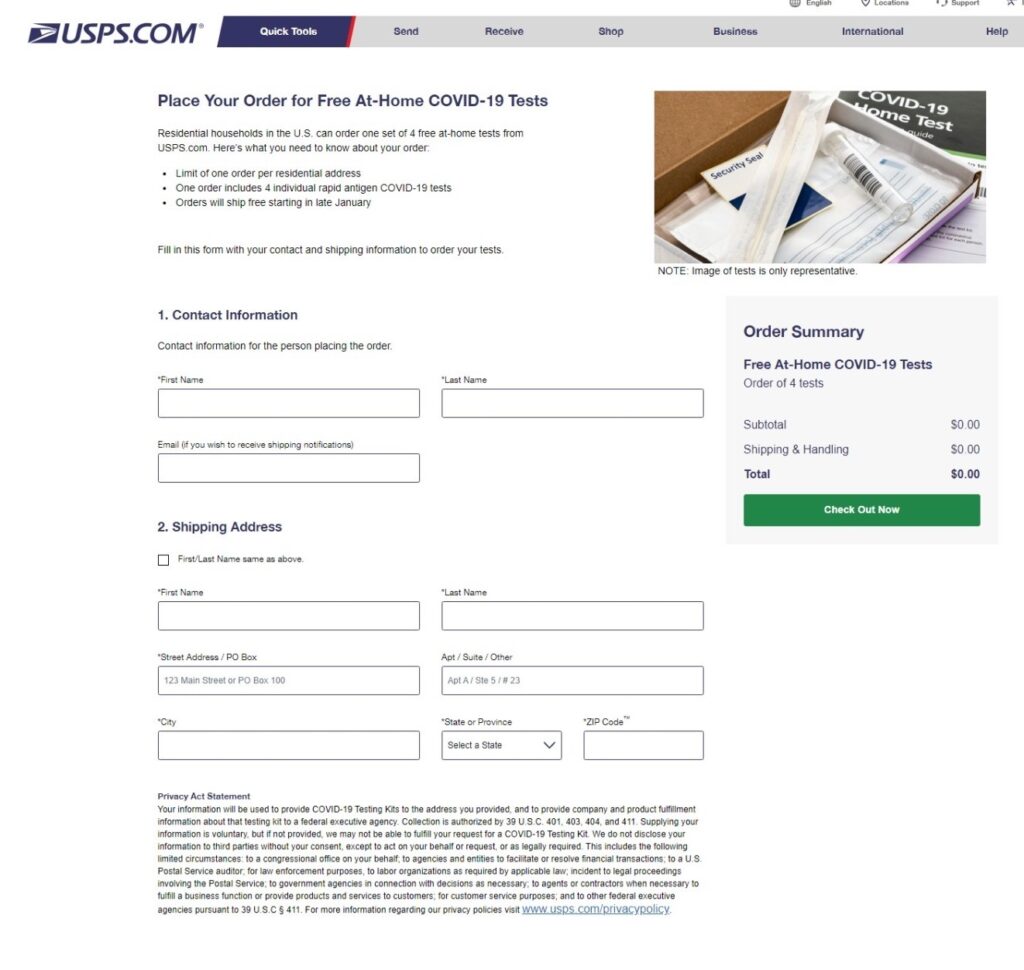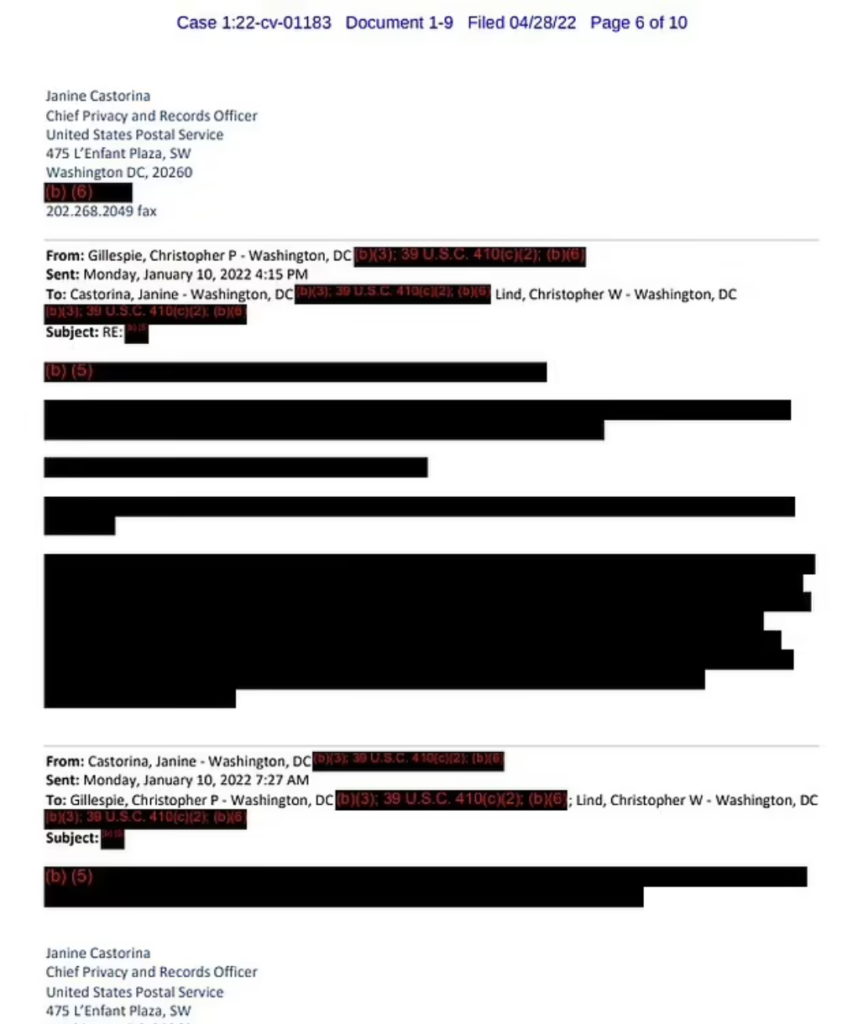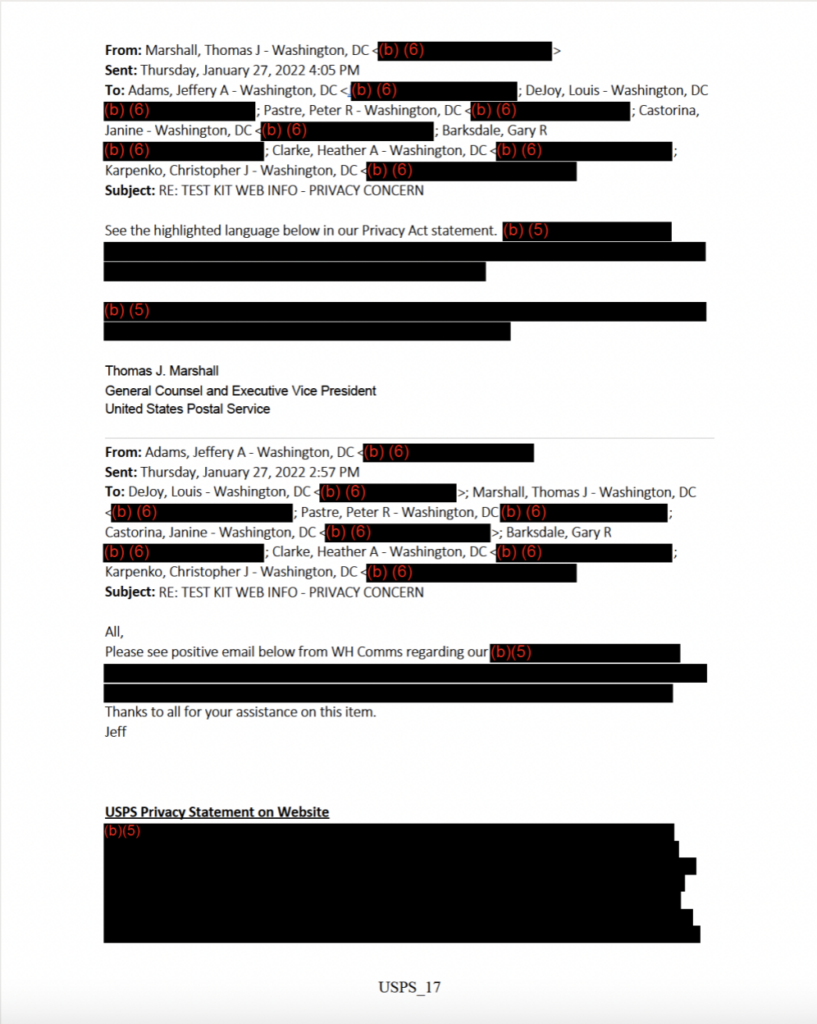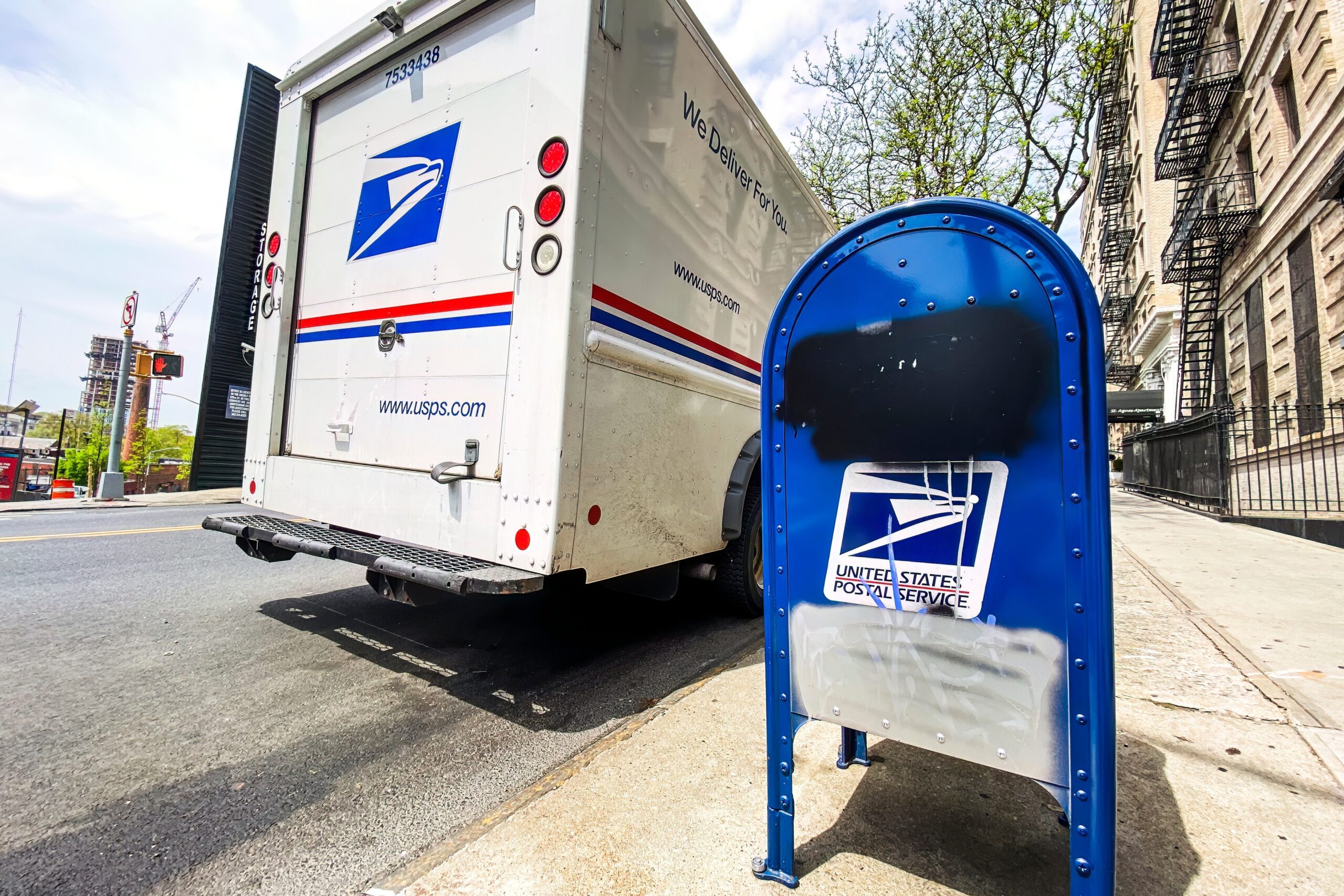The United States Postal Service (USPS) is entangled in a federal lawsuit, accused of potentially sharing the private information of over two-thirds of American households with labor unions.
The controversy initially arose from a program initiated by the Biden Administration to distribute free Covid-19 tests. The program involved mailing four free tests to any American who filled out an online form on USPS’s website.
But Americans for Fair Treatment (AFFT) uncovered a clause in the online form’s small print, saying USPS can disclose to labor organizations the highly personal information Americans submitted – without their consent. This information includes both where they live and how to contact them directly. USPS’s disclosure raised alarms about why USPS would potentially aggregate vast amounts of Americans’ sensitive data and give it to labor unions. Since then, it appears USPS has added this labor unions language to the fine print for purchases both through USPS.com and in brick-and-mortar stores. It even added the language to its Change of Address form.

In response to these concerns, AFFT filed a Freedom of Information Act (FOIA) request seeking clarity on both USPS’s decision to include labor organizations in the data-sharing clause and whether it has shared Americans’ information with these unions. Although USPS initially claimed there were ”no responsive records,” it later released to AFFT a few heavily redacted emails between USPS staff that only revealed dates and correspondents’ names.

Frustrated by USPS’s inadequate response, AFFT filed a lawsuit in federal court in Washington, DC, in April 2023, alleging that USPS acted arbitrarily and capriciously in conducting an insufficient search for responsive records and redacting pertinent information.
“With this lawsuit, we have a real opportunity to get to the bottom of why Biden’s USPS says it may send citizens’ personal information to labor unions when they use postal services,” AFFT CEO Elisabeth Messenger said. “Americans deserve to know how their information is being safeguarded, if it has been sent to a powerful political interest group, and what union officials may be doing with it.”
In March, U.S. District Judge Royce Lamberth determined that USPS’s response to AFFT’s FOIA request was insufficient. He mandated that USPS “conduct an additional search” and better explain why it redacted information from the records it produced by early July.
After conducting that second search, the USPS turned up vastly more records, and several emails suggest the White House was involved in decision-making surrounding the privacy disclosure. But those records have left more questions than answers; USPS again redacted most of their substance. AFFT’s position is that USPS’s response to its FOIA request remains inadequate.
After receiving multiple extensions from the Court, USPS is now expected to file a brief in mid-January that explains its actions.

“USPS officials continue to hide behind a legal smokescreen,” said David Dorey, legal counsel for AFFT. “They have successfully avoided answering AFFT’s questions for nearly two years running: Why does USPS keep saying it can without consent share Americans’ personal information with union officials, and what has it actually done with that information?”
AFFT will press on with its lawsuit in search of the truth, which it will share with the American people whose deeply personal information is at stake.
